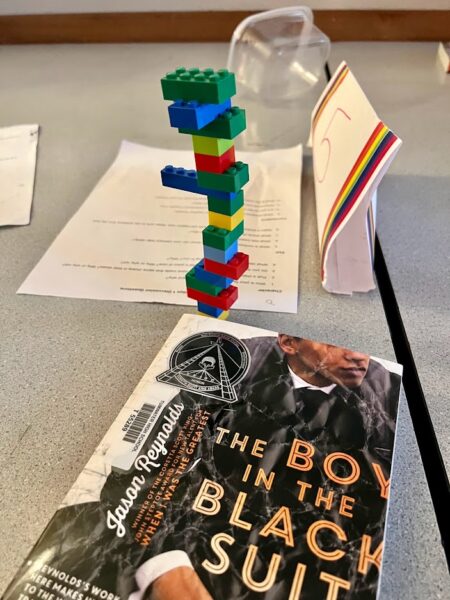CSTP Updates
There is just one month left in the 2023 Legislative Session, and this week lawmakers were desperately trying to get last minute bills passed out of committee before Wednesday’s deadline, as well as working behind the scenes crafting this year’s budget. Wednesday marked the last day for bills to pass out of policy committees in the opposite house, except for fiscal committees. The House Appropriations and Senate Ways & Means Committees have until Tuesday, April 4, to move bills out.
Last Friday, the State Supreme Court upheld the capital gains tax, reversing the previous superior court order. This means that the revenue raised by this tax can be assumed in our state’s next two-year budget, which comes as a relief to many lawmakers during this budget-drafting crunch time. While we are on the topic of budgets, Senate Democrats released their budget proposal late last week, and according to NPR, “The operating budget that Senate lawmakers released includes about $5 billion in new spending, and almost $3 billion of that would be for education, for things like teacher salaries, special education funding.” The House Democrats released their budget proposal Monday afternoon, and Crosscut reports, “The proposed House budget would spend nearly $70 billion over the next two years, an increase from the $59 billion budget plan approved two years ago. Among other things, it would expand the number of K-12 schools providing free breakfast and put $172 million toward boosting special education in K-12 schools. Now that both the house and senate have released their proposals, lawmakers will need to sit down to figure out a compromise by April 23, the end of the session.
Education Committee Hearings for Next Week on TVW.org
House Appropriations Committee
- Monday, April 3 at 9:00 a.m.
- Tuesday, April 4 at 9:00 a.m.
Senate Ways & Means Education Committee
- Monday, April 3 at 10:00 a.m.
- Tuesday, April 4 at 10:00 a.m.
House Bills
2SHB 1013: which would require OSPI and Washington ESDs to jointly establish a regional apprenticeship pilot program with one site each in Eastern and Western Washington (hearing time: 6:18). The bill is in the Senate Ways & Means Committee.
SHB 1015: which revises minimum employment requirements for paraeducators. The bill has passed both chambers and has been signed by the House Speaker and the Senate President.
ESHB 1057: which would provide a benefit increase to certain retirees of the public employees’ retirement system plan 1 and the teachers’ retirement system plan 1. The bill is in the Senate Rules Committee.
SHB 1109: which would provide additional special education funding to school districts in order to increase initial evaluations during summers. The bill is in the Senate Ways & Means Committee.
HB 1146: which would require schools to notify high school students and their families about available dual credit programs and any available financial assistance. The bill is in the Senate Rules Committee.
SHB 1207: which aims to prevent and respond to harassment, intimidation, bullying, and discrimination in schools through updated policies and procedures. The bill is in the Senate Rules Committee.
2SHB 1238: which would require K-5 elementary public schools, beginning with the 2024-25 school year, to offer universal free breakfasts and lunches if up to 30% of students at the school qualify for free or reduced lunch. The bill is in the Senate Ways & Means Committee.
ESHB 1277: which would establish rules to improve the consistency and quality of the implementation of the fundamental courses of study for paraeducators. The bill is in the Senate Rules Committee.
HB 1308: which establishes a graduation pathway option that enables students to meet pathway requirements by completing a performance-based learning experience. The bill is in the Senate Rules Committee.
2SHB 1316: which would lower dual enrollment program costs for eligible students from $65 to $42.50 per credit by creating a subsidy program, incentivizing reduction of per college credit fees charged to college in the high school students, and revising eligibility for the Running Start (RS) program tuition fee waiver. The bill is in the Senate Ways & Means Committee.
2SHB 1332: which would require all school districts to incorporate a tribal sovereignty curriculum into their social studies curricula by September 1, 2023, as well as require districts to consult with the nearest federally recognized Indian tribe(s) about incorporating materials about their history, culture, and government into their social studies curricula by September 1, 2025. The bill is in the Senate Ways & Means Committee.
ESHB 1377: which would require the posting of approved courses and providers of continuing education. The bill is in the Senate Ways & Means Committee.
ESHB 1436: which would increase the enrollment limit for special education funding over several years until the 2027-28 school year, when the limit is removed, and would increase special education excess cost multipliers for kindergarten through age 21 over four school years to 1.059 for students who spend at least 80 percent of the school day in a general education setting. The bill is in the Senate Ways & Means Committee.
HB 1478: which establishes a statement of student rights for public schools and requires public schools to develop student-focused educational and promotional materials that incorporate the statement and to include the materials into required civics instruction. The bill is in the Senate Rules Committee.
2SHB 1550: which would establish the transition to kindergarten program to provide no-charge assistance to eligible children in need of additional preparation to be successful kindergarten students in the following school year. The bill is in the Senate Ways & Means Committee.
2SHB 1565: which requires the development of an online platform for the recruitment and hiring of public school employees and establishes a teacher residency program. The bill is in the Senate Ways & Means Committee.
HB 1622: which aims to support the needs of students experiencing homelessness by aligning program goals, establishing common reporting requirements, and establishing examples of permitted expenditures for the OSPI program. The bill is in the Senate Rules Committee.
SHB 1658: which would authorize high school students aged 16 and above to earn up to two elective credits through paid work experience if approval and alignment with the student’s High School and Beyond Plan are met. The bill is in the Senate Rules Committee.
SHB 1701: which concerns basic education services to youth who are served through institutional education programs. The bill is in the Senate Ways & Means Committee.
Senate Bills
SB 5019: which removes “classified staff providing student and staff safety” from the definition of physical, social, and emotional support staff and the specific funding considerations for that group. The bill is in the House Rules Committee.
SSB 5048: which would require colleges to provide enrollment and registration in College in the High School (CHS) courses at no cost to students in grades 9-12 at public high schools, and would require the legislature to appropriate funds to fund CHS courses, at inflation-adjusted rates. The bill is in the House Appropriations Committee.
SSB 5072: which would establish new requirements for identifying students who may be eligible for highly capable services, including conducting universal screenings once in or before second grade, and again before sixth grade. The bill is in the House Rules Committee.
ESSB 5102: which requires school districts and school boards to provide every student with access to school library information and technology programs. The bill is in the House Appropriations Committee.
SSB 5127: which would clarifyschool districts’ ability to redact personal information related to a student. The bill is in the House Rules Committee.
E2SSB 5174: which would modify the student transportation allocation formula and expand the definition of “to and from school” to include the transportation of students participating in career connected and work based learning opportunities. The bill is in the House Rules Committee.
ESB 5175: which would allow employment contracts between a school board and principal to be up to three years in length, as opposed to limited to a term of one year. The bill is in the House Rules Committee.
E2SSB 5243: which revises high school and beyond plan (HSBP) requirements, and would require OSPI to facilitate the transition and adoption of a common online platform for HSBPs. The bill is in the House Appropriations Committee.
ESSB 5257:which would ensure that public schools provide daily recess for all elementary students with a minimum of 45 minutes when the school day is longer than five hours and a minimum of 30 minutes when the school day is shorter, as well as prohibit schools from withholding recess as a punitive action. The bill is in the House Rules Committee.
E2SSB 5311: which would increase the special education excess cost multipliers for pre-K and K12 students over a four-year period and increase the special education enrollment funding cap from 13.5 percent to 14.5 percent. The bill is in the House Appropriations Committee.
E2SSB 5315: which would require OSPI to establish standards for approval, monitoring, and investigating school district contracts with nonpublic agencies (NPAs) operating special education programs for students with disabilities, and requires that restraint and isolation procedures and notification requirements apply to NPAS. The bill is in the House Appropriations Committee.
ESB 5355: which requires school districts to provide instruction on sex trafficking prevention and identification at least once between grades 7 and 12 beginning in the 2024-25 school year. The bill is in the House Appropriations Committee.
SSB 5617: which would require interdistrict cooperative agreements in a skill center to stipulate that any course equivalencies approved by OSPI or a host district must be honored by other participating school districts. The bill is in the House Rules Committee.
SSB 5626: which requires OSPI to establish a grant program for expanding the capability of school districts to integrate media literacy and digital citizenship into public school instruction. The bill is in the House Appropriations Committee.
ESB 5650: which concerns salary inflationary increases for K-12 employees. The bill has passed both chambers and has been signed by the House Speaker and the Senate President.
Odds and Ends
“Called “un-grading,” the idea is meant to ease the transition to higher education…” This week from NPR Ed, To Help New Students Adapt, Some Colleges are Eliminating Grades.
“I provide my students with examples from their real world that show they need a basic understanding of the science to comprehend the things taking place around them every day,” from MindShift this week, How Science Class Can Help Students Explore Inequities in Their Communities.
Meet CSTP’s Legislative Update Coordinator Samantha Miller

Samantha Miller returns as CSTP’s Legislative Updates Coordinator for the 2023 legislative session. She writes weekly emails during the legislative session focusing on bills that impact Washington educators. Samantha has degrees in both Political Science and History, as well as a Master in Teaching. Samantha has worked in Elementary Education for 6 years, most recently as a 3rd Grade general education teacher. The majority of her time is spent chasing around her two children who keep her very busy. Samantha enjoys running, working in her yard, listening to political podcasts, and spending time with her family.




